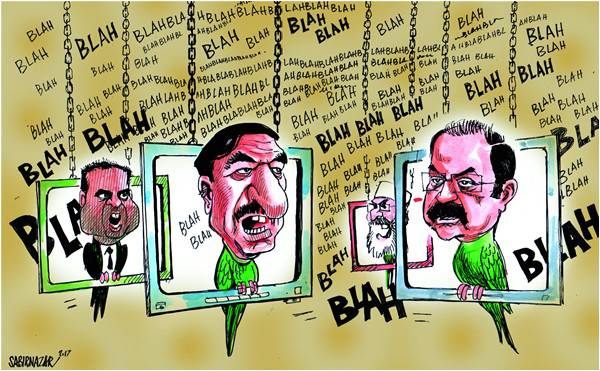
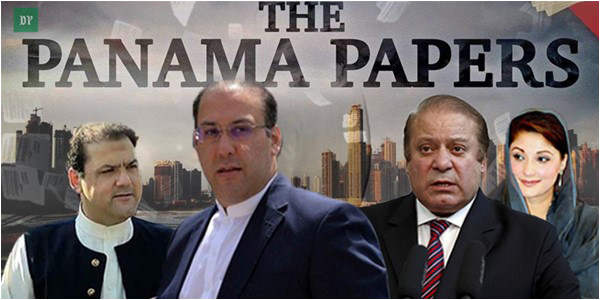
Law and justice
Sir,
Both the Constitution of Pakistan and Islamic jurisprudence stress that all people are equal before the law and justice must not only be done but also seen to be done. After the Quaid’s death, this country has seen an erosion of the basic laws of justice, morality and ethics of governance, not because of an absence of laws, but because of their applicability to all citizens.
It is the selective application of laws and self-acquired immunity from prosecution by powerful individuals, groups and institutions funded by the taxpayer which has nurtured a culture of unchecked abuse of power, pilfering of state funds ultimately leading to a breakdown of law and order in this country.
The Supreme Court decision to hold accountable an elected prime minister of Pakistan, whose undeclared assets were revealed in the Panama Papers, is a good beginning, but can only achieve the desired results if the process of accountability is extended to include all sections of the populace. Political struggle to achieve an independent sovereign state for a Muslim majority to live in peace with members of other faiths finally led to the creation of Pakistan in 1947 but this would be in vain if the rule of law does not prevail.
Institutionalized injustices and irregularities have become so rampant that they have assumed the status of regularity in this country. It is a travesty of justice that while a constitutionally elected prime minister can be held accountable, known property and land mafia tycoons involved in criminal offences seem to be beyond the pale of judicial prosecution and the profits they earn are subject to a mere 0.3% of tax calculated on the reduced DC Rate, while senior citizens relying on National Savings investments pay over 15% WHT on their meager monthly earnings. How can those whom the PM appoints be not held accountable before the Supreme Court when he is?
The ruling elite and paid servants of state have created a system in which the only beneficiaries of the welfare and allotment of multiple plots are they themselves, whilst the masses are deprived of their basic rights. Tax evasion and money laundering have assumed the status of an accepted norm and privilege of the elite, instead of a heinous financial crime, creating hurdles for the state to perform its basic constitutional obligations of providing subsidized education, health, security of life and basic necessities such as clean drinking water to the people of this country.
Ali Malik Tariq,
Lahore.
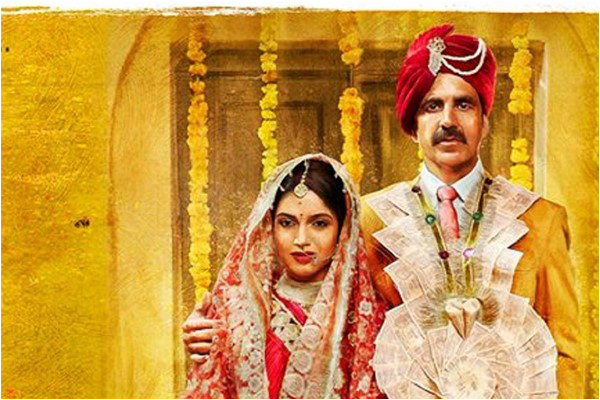
Atta Shad College
Sir,
Atta Shad Degree college in Turbat is the only governmental college in the city but it doesn’t have enough teachers and classrooms. As a student of Political Science, I have just one teacher who teaches Political Science in three different classes. Recently, he was assigned to the BSc examination and we had no other teacher to take our classes. The same thing happened with Sociology which is one of the main subjects but we only have one teacher.
There are about 2,000 newcomers out of which almost 200 students are regularly attending classes. All these two hundred students sit in the same class. Most of the students get no place to sit in class and they stand near the windows and door to listen to the lectures. So, my request is that authorities do something to help us.
AJ Maqsood,
Turbat.
Traffic woes
Sir,
The population of Turbat city has increased in recent days. Many students from rural areas have come to Turbat to acquire an education and some have started working here. This increase in population has led to increased traffic. We have no traffic police in most of the busy roads aside from those posted at the main chowk. Drivers break the rules and go the wrong way. Unfortunately, our roads are not wide either. Emergency vehicles don’t get right of way. So, I request the government to try to find solutions.
Ali Jan,
Turbat.
Village toilets
Sir,
Audiences have been upset by the release of a new movie Toilet: Ek Prem Katha, with Akshay Kumar and it has been met with protests in which fires were lit in Bollywood. The film was well directed and based on a woman’s fundamental need to have a toilet at home.
The story opens with Akshay and Bhumi Pednekar falling in love and getting married despite some strange odds. But soon after the wedding, she decides that she can’t live in the village if she has to go to the field to relieve herself. The family does not have a toilet at home.
But because he has a lot of love for his wife, Akshay decides to fight for her. He encounters endless hurdles but is committed to bringing her back and building a proper toilet at home. The movie is considered the highest grossing Hindi movie of the year leaving behind the blockbuster movies Raees of Sharukh Khan.
One wonders how many women in Pakistan are forced to defecate in the open fields and how many of their husbands will watch this film and understand that they can and should build toilets at home for the women. According to WaterAid, Pakistan is among the 10 countries where most urban dwellers lack access to safe and private toilets. India has the highest number of urban dwellers who do not have access to safe and private toilets ? 157 million people. “With more people than ever before migrating to cities, finding a toilet is not only a chore but a public health issue for hundreds of millions of people around the world.”
When women have to go to the fields they are at risk of being attacked and they have no privacy. One would think with all the other restrictions on women’s movement in villages because of ‘ghairat’ their families would try to ensure that they have access to a toilet at home.
Qandeel Gulab,
Turbat.
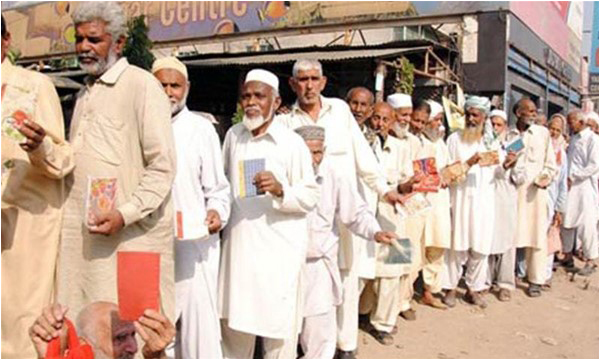
Day of Older Persons
Sir,
The UN has declared the first of October International Day of Older Persons. It is a day for governments and civilized societies to evaluate their role in looking after senior citizens. These people have worked all their lives, paid taxes and are today reliant on the State to look after them by paying them pensions and providing health benefits so that they lead their lives in a dignified manner.
Pakistan is supposed to be an Islamic state whose founding father wanted it to be a modern democratic welfare country. Unfortunately, the State seems to be oblivious to its constitutional and moral obligations of catering to the welfare of its senior citizens and deprived sections of society.
Instead of helping senior citizens, successive governments in Pakistan, especially this PML(N) government and its finance minister have raised the With-Holding Taxes on widows, orphans, the handicapped and elderly who have invested their lifelong savings in the National Savings Schemes. On the other hand it has given tax amnesty schemes to the privileged few of this country. Also, the federal government chose to give concessions on profits of crores of rupees earned through real estate sales, most of them being allotted at subsidized rates, and it provided numerous tax amnesty schemes for the import of luxury limousines.
State-owned corporations such as PIA in which pension schemes were launched under the guidance of AM Nur Khan in 1974. It was during his tenure that the national airline became profitable, earned laurels and was counted among the first airlines in Asia to cross the Atlantic. It was also the only airline to start operations to China from over the Himalayas. This pension scheme was launched with the management of PIA putting a percentage of the budget allocated for salaries in a pension fund which was to be self-generating and sustained with investments in state-secured investment schemes. However today PIA, which has been driven to bankruptcy by corrupt political cronies, has written a history of financial and administrative indiscipline. It is trying to make a scapegoat of its retired employees by eliminating not just their pensions but their health and other benefits such as concessional travel which is an international practice all over the world.
Zaman,
Peshawar.
Hot weather
Sir,
People like the person who decided to run this truck deserve to be praised for providing some relief to the common people in these extremely hot conditions in Karachi.This noble man provides cold water all the day long till evening in Gulshan-e-Iqbal area.
Ahmed,
Mera Karachi Facebook group.
Ignored villages
Sir,
Kolwah is the most underdeveloped part of Balochistan. It shares limits with Awaran and Kech districts. Because of its backwardness it is not that much known in the province compared to other areas. East Kolwah is divided in two parts due to mountains and fields in the middle. The Hoshaab-Lasbela motorway passes through north Kolwah. Because of the importance of the motorway a mobile company recently planted three cell phone towers in north Kolwah as a link of CPEC route passes here. While south Kolwah, which has more than 30 villages, has been completely been neglected and do not have access to any source of communication. The mountains which separate south Kolwah from the north of Kolwah are the obstacles for the coverage reaching south Kolwah.
I appeal to the authorities to help provide the entire area a communication network. Two or three towers should be planted in south Kolwah as well.
Haleef Kolwahi,
Awaran Balochistan.
Blast in Jhal Magsi
Sir,
It makes me upset that for days Balochistan has been targeted by terrorist groups. A suicide bomb blast took place in Jhal Magsi. More than 12 people died and several others were injured, including two policemen. The attack happened near Dargah Fatehpur. According to rescue workers, the blast was planned when people were at a famous Sufi site. The terrorists attacked an area where they thought devotees would perform a dhammal.
In November 2016, Shah Noorani shrine in Khuzdar was attacked and at least 52 people were killed and scores others were injured. These attacks keep happening in Balochistan. My request is that the government help the injured people and the families of those who have lost their loved ones.
Suliman Zabad,
Turbat.
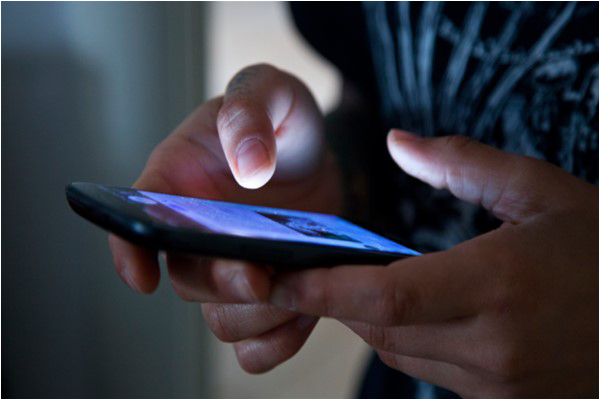
Blue whale
Sir,
The notorious suicide game, Blue Whale Challenge, is spreading in South Asian countries. The Blue Whale Challenge made headlines last month after reports claimed that at least 130 teenagers in Russia were instigated to take their own lives by closed social media groups. The game, which is believed to be inspired from the blue whales who have been known to beach themselves on purpose, prey on vulnerable teenagers with low self-esteem. The victims are manipulated by group admin(s) or game curator(s) into a series of tasks over the course of 50 days.
The Punjab FIA Cyber Crime Department recently had tracked down the case of a teenager in Lahore. It has spread Russia, India, Saudi Arabia as well.
The authorities need to pay serious attention to this. Parents need to be vigilant about their children using cell phones and computers.
Aziz Ali Mohammad,
Delta.
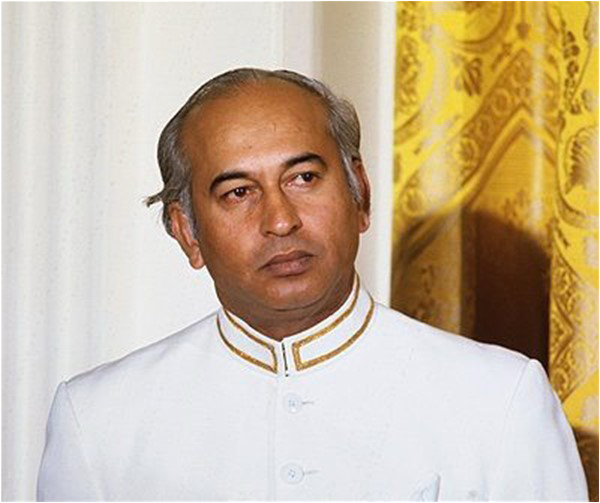
PM Abbasi’s attire
Sir,
This refers to the ongoing debate on social media regarding PM Shahid Khaqan Abbasi’s attire at the sidelines of the UN meetings. The PM had the courage to depart from the tradition of his predecessors, including former PM Nawaz Sharif who always wore expensive suits with neckties, though conscious of that and adjusting them very frequently along with wearing the most expensive wristwatch.
PM Abbasi definitely took it very casual when meeting world leaders without a necktie and it is up to him to wear a dress of his own choice. A suit is not the dress of the East. I remember once while ZA Bhutto was addressing a public meeting (one of the best-dressed men in the world), he saw a young man wearing a suit without a tie. He removed his tie and threw it towards the young boy, advising him not to ever wear a suit without a necktie. He them removed his coat, so as to observe and follow the custom, practices and traditions of wearing western-style suits.
Probably and presumably our PM feels uncomfortable wearing a necktie for one reason or the another. In such a case he should have opted for the national dress, which is graceful attire. Our founding fathers, Quaid-e-Azam Muhammad Ali Jinnah and Quaid-e-Millat Liaquat Ali Khan, on all official occasions wore the national dress of the choori-dar pajama, sherwani and Jinnah cap. Mr Jinnah was the best-dressed political personality of his time and always took special care. He always bought his clothes from his own pocket, even the socks. Such a towering personality never gave critics a chance to raise a figure on his dressing. During his swearing-in ceremony, he wore a choori-dar pajama and sherwani and looked graceful and elegant as did Liaquat Ali Khan while presenting the national flag of Pakistan in the newly installed constituent assembly.
When the founding fathers preferred the national dress, why can’t our prime ministers opt for it as it is not only smart, dignified and honourable along with comfortable and decent? In international politics, when world leaders meet each other, the dress they wear also conveys a message. When Gen (r) Pervez Musharraf visited India for the Agra summit, he landed at Delhi Airport wearing a white sherwani, conveying a message of peace to India in particular and to the world in general. It is hoped that in all future official engagements our prime ministers and ministers will prefer to wear the actual and real national dress as was worn by the founding fathers.
Aamir Aqil,
Lahore.

